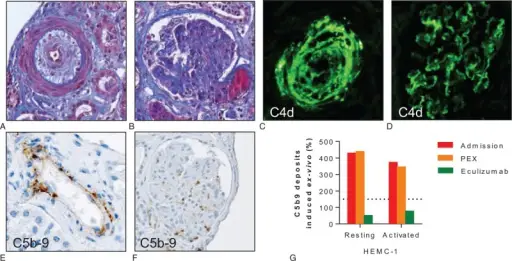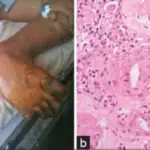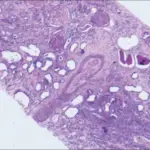Atherosclerotic ischemic renal disease is a renal inadequacy associated with main renal artery stenosis and/or occlusion.
What is the Pathology of Atherosclerotic Ischemic Renal Disease?
The pathology of atherosclerotic ischemic renal disease is:
-Etiology: The cause of atherosclerotic ischemic renal disease is renal arterial stenosis.
-Genes involved: Unknown.
-Pathogenesis: The sequence of events that lead to atherosclerotic ischemic renal disease follows bilateral renal arterial stenosis.
-Morphology: The morphology associated with atherosclerotic ischemic renal disease shows necrotized renal tissue.
-Histology: Thickened, muscular arteries that may be calcified.
How does Atherosclerotic Ischemic Renal Disease Present?
Patients with atherosclerotic ischemic renal disease typically more common in males present at the age range of old age. The symptoms, features, and clinical findings associated with atherosclerotic ischemic renal disease include hematuria, proteinuria, accelerated hypertension, and renal failure, and end stage renal failure symptoms.
How is Atherosclerotic Ischemic Renal Disease Diagnosed?
Atherosclerotic ischemic renal disease is diagnosed through arteriographic studies.
How is Atherosclerotic Ischemic Renal Disease Treated?
Atherosclerotic ischemic renal disease is treated by medical care such as beta blockers, ARBs, ACE inhibitors. Dialysis, surgical care such as revascularization, and transplant.
What is the Prognosis of Atherosclerotic Ischemic Renal Disease?
The prognosis of atherosclerotic ischemic renal disease is poor, associated with ESRD.



